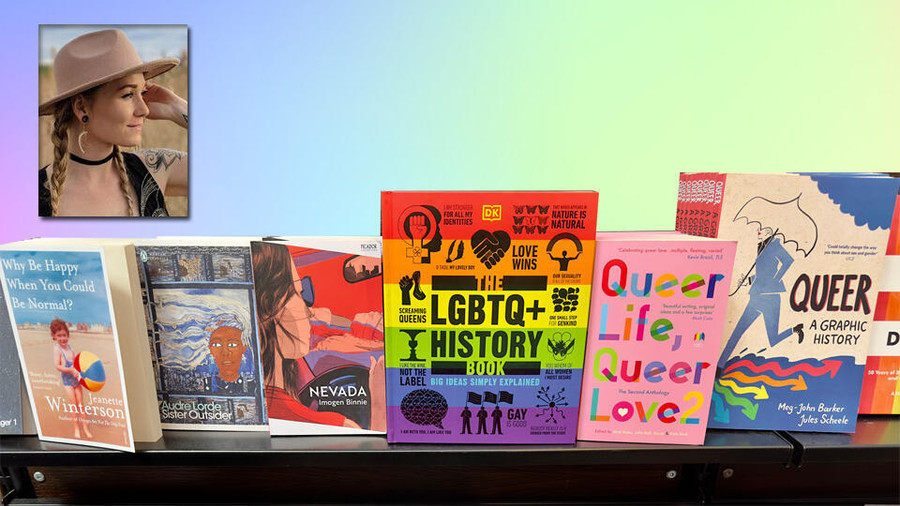Thanks to the efforts of activists, sex educators and members of marginalized communities, products like sex toys, lubricants and adult films have become much less stigmatized, and much more visible and accepted in the public sphere today. Despite these strides, however, much adult industry marketing still feels trapped in an outdated mode. We’re in a world that is increasingly open to exploring topics like body positivity, kink, nonmonogamy and gender fluidity. Yet many campaigns continue to cater primarily to the cisgender, heterosexual, middle-class Caucasian narrative — when what’s really needed now is marketing that builds on the evolution described above.
An Unexpected Leap
Real, lived experiences are powerful tools for understanding and crafting marketing strategies that resonate authentically.
I went from being a historian to becoming the director of PR and marketing for a firm specializing in adult products, stars and films. While this may seem like an unusual career trajectory, for me it was the perfect progression. While pursuing my master’s degree, I found myself drawn to the history of gender and sexuality. The societal struggle to control the expression of sexuality and define gender roles is a common theme throughout Western history, and it still shapes our modern experiences and individual identities.
When my career path led me outside of academia and into marketing, I found that these themes remained highly relevant in my new field. I now use my understanding of how societal views on sex and gender have evolved to craft PR and marketing campaigns that resonate with and help educate our audiences.
Past, Present, Future
Unfortunately, many people in our industry overlook the complex ways in which historical perceptions of sexuality still impact us today. There is often a hesitation to go past the surface level when discussing pleasure, desire and identity. I’ve spent years studying the shifts in societal norms, from Victorian-era sexual repression to the sexual revolution of the 1960s and beyond. All of that informs how I think about modern marketing strategies.
Historically, public discussions about sex and sexuality have been heavily repressed, particularly when the types of sexuality in question challenge societal norms. From the Comstock Laws of the 19th century, which criminalized the distribution of “obscene” materials — including information about birth control and sexual health — to the stigmatization of LGBTQ+ communities and nontraditional relationships throughout the 20th century, entire groups of people have fought tirelessly for the right to discuss and explore their sexuality openly.
This history resonates in people’s lives and reflects their lived experience. Acknowledging and respecting history is therefore being both ethical and inclusive, with campaigns that don’t merely slap a rainbow flag on a product for Pride month or capitalize on body positivity when it’s trendy, but genuinely reflect the diversity of experiences and identities among the people who buy our products.
Marketing strategies should engage with the communities they represent, bringing in the voices of LGBTQ+ creators, nonbinary individuals and people from various racial and ethnic backgrounds. Brands need to be intentional about their messaging, ensuring it doesn’t exploit marginalized groups for profit, but instead helps break down the stigmas that still exist today. In this way, our understanding of the past helps construct our vision for the future.
Asking the Right Questions
When I’m building a PR campaign for a client, whether it’s a sex toy company or an adult film star, I always think about the larger narrative to which we’re contributing. How can we push past the barriers of what’s traditionally been considered acceptable or marketable? How can we make space for more inclusive and authentic representations of pleasure?
For example, I’ve had the opportunity to work on campaigns that incorporate themes like sexual autonomy, body positivity, and pleasure for all genders and orientations. I don’t shy away from topics like asexuality, kink or nonbinary identities. These aren’t fringe topics — they’re part of the everyday lives of our consumers, and they deserve to see themselves reflected in the marketing campaigns we create. It’s an absolute joy to educate people not only on the features and benefits of the products I represent, but also on how those products can enhance their unique experiences of pleasure and identity.
Understanding the complexities of sexuality and gender from a historical perspective has enriched my work in PR and marketing, allowing me to craft campaigns that feel authentic, progressive and genuinely representative of today’s consumers. In doing so, I’ve been able to contribute to a broader conversation about what it means to experience pleasure in the 21st century — whether that means breaking taboos or simply helping people feel seen and validated in their sexual identities.
Knowledge Is Marketing Power
Looking ahead, it’s clear that we must continue pushing boundaries in the adult industry. That means understanding the rich context surrounding gender, sexuality and the fight for sexual freedom. Fortunately, you don’t need a master’s degree in history to do that! There are many ways to educate yourself.
Start by diving into books, podcasts and documentaries that explore the history of sexuality, LGBTQ+ rights and the sex-positive movement. I recommend the books “Come as You Are” by Emily Nagoski and “Exile and Pride: Disability, Queerness, and Liberation” by Eli Clare, as well as the “Unladylike” podcast. Follow sex educators, activists and diverse voices such as Ericka Hart and Ev’Yan Whitney, to gain current perspectives on inclusivity and representation in the industry. Engage with organizations that advocate for sexual rights and provide valuable resources, like the Woodhull Freedom Foundation.
Finally, listen to the communities you are marketing to. Real, lived experiences are powerful tools for understanding and crafting marketing strategies that resonate authentically. In the end, the industry isn’t just about products — it’s about people. When we understand that, we can build more thoughtful, inclusive and forward-thinking brands.
Hail Groo is the director of PR and marketing for Forward Approach Marketing, where they combine their background as a public historian with over a decade of expertise in diverse marketing fields. Beyond their work in PR and marketing, Hail is a published travel writer, magazine contributor, podcast guest, award-winning photographer and Colorado-based journalist.








